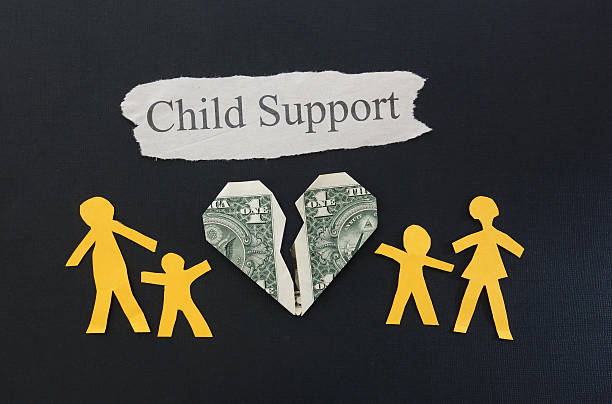People often ask family lawyers the question “what age do you stop paying child support?” In short, the answer to the question what age do you stop paying child support is until the child turns 18 years of age.
When discussing child support, there’s more to the subject than the topic of “what age do you stop paying child support.”
It is important to stay informed about other aspects related to child support. “At what age do you stop paying child support?” is only one of the other important questions related to child support payments.
Other questions include “what is child support” and “how is child support calculated?” etc. This article will discuss some of these questions in addition to exploring in detail the answer to the question “what age do you stop paying child support?”
What Is Child Support?
Child support is a type of financial support payment that the non-primary carer of a child makes to the primary carer of a child. It is important to ensure that parents financially support their children even after the breakdown of their relationship.
Department of Human Services, or Services Australia governs child support payments and applications. The Child Support (Assessment) Act 1989 states that each parent has a duty to financially maintain their child.
Who needs to pay child support?
Any parent of the child – biological or adoptive – is responsible for making child support payments. Generally, the parent who receives child support is the primary carer of the child.
In other words, a parent who looks after a child for a majority of the time can receive child support payments from the other parent.

What Age Do You Stop Paying Child Support: Child Support Calculation
Now that you know the meaning of child support, and the answer of “what age do you stop paying child support” read on to understand how these payments are calculated.
Services Australia has a formula that they follow to check the amount of child support that will be payable. This includes things like:
- Both parents’ incomes;
- Assess both parents’ percentage of care of the children;
- Calculate the costs of looking after the child
Services Australia might consider other factors. If required, a parent (either the payer or receiver of child support payment) can request a reassessment of child support payments in case any circumstance has changed.
What Age Do You Stop Paying Child Support?
As mentioned above, child support payments generally stop when the child turns 18 years of age. However, sometimes, child support payments can stop earlier. This happens in cases where:
- The child has become financially independent and is able to earn some income;
- The child has married another person. or has entered a de facto relationship with another person;
- Another person adopts the child and so that person will have financial responsibility of the child; or
- The child has passed away.
For children over 18, child maintenance or adult child maintenance payments may be applicable.
Ways In Which Child Support Payments Can Be Made
A party can make child support payments in a variety of ways. While some prefer making a lump sum payment, others might prefer making periodic payments. Similarly, a party can make child support payments either directly, or indirectly.
Lump sum payments:
A party can make a lump sum payment that is equal to the amount assessed by Services Australia. This amount can be credited against the total payable amount.
Period payments:
In this arrangement, the paying party makes direct payments to the other party on a regular basis. The amount of periodic payments can change in case of new circumstances.
Non-periodic payments:
These are indirect payments wherein the paying parent makes payments to a third party. For example, paying for the school fees of the child, paying for extracurricular activities, paying for medical needs of the child etc.
Non-agency payments:
These payments can be either direct or indirect. For example, non-agency payment can include paying off the debts of the other parent to a third party.

Child Support Agreements
Another question that gets asked along with “what age do you stop paying child support” is regarding child support agreements in family law.
When two parties are able to agree on the amount of child support that needs to be paid and received, making child support agreements is recommended.
Broadly, there are two types of child support agreements. These are:
- Limited Child Support Agreement (LCSA), and
- Binding Child Support Agreement (BCSA).
Limited Child Support Agreement:
A Limited Child Support Agreement or LCSA if a very flexible child support agreement. Parties can enter into a LCSA once Services Australia calculates the amount of child support payments that are to be paid.
Parties must make an agreement on whether the LCSA can be terminated within three years from the date of the agreement, or whether the LCSA can be continued.
Binding Child Support Agreement:
Services Australia needn’t be involved for Binding Child Support Agreements (BSCA). In this case, you and your former spouse can come up with child support agreements. However, this will not be as flexible as LSCA.
To change any condition of a BSCA, the parties may need to apply to the Family Court of Australia. Notably, there are certain requirements to enter into a BSCA:
- The BCSA must be made in writing, and it must be signed and dated by both parties.
- It must specify how the child support payments will be made (as lump sum or periodic payments), and
- Both parties entering the BCSA must have received independent legal advice.
Family Lawyers’ Guidance
This article has discussed the question of “what age do you stop paying child support” along with other important considerations. Mainly, it is necessary for each party to know the amount of child support payable. More importantly, entering agreements may be beneficial to make matters more certain.
At JB Solicitors, our family lawyers have a wealth of experience that enables them to provide tailored advice to all clients. Legal guidance is important whether it is for making child support applications, or to enter into child support agreements.
For more enquiries, reach out to our friendly and experienced team today.
